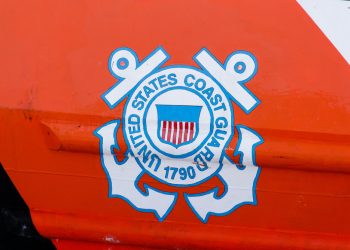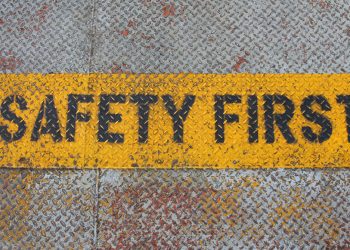The US Coast Guard Office of Commercial Vessel Compliance published a new policy letter to provide guidelines to District Commanders, Sector Commanders, and Officers in Charge, Marine Inspection (OCMI) when considering requests for vessels to participate in hurricane relief efforts.
The Policy Letter 19-03, “Guidance for Vessel Requests to Participate in Hurricane Operations,” highlights that vessels operating within the conditions outlined in their Certificate of Inspection (COI), generally, do not need additional permission from the Coast Guard to engage in relief operations.
When the Coast Guard Sector Commander, US Maritime Administration (MARAD), Federal Emergency Management Agency (FEMA), or other government agency identifies that a sufficient number or type of vessels are not available to provide the needed support, it may be appropriate for the Coast Guard to permit certain exemptions or equivalencies to facilitate relief efforts.
The following outlines areas for consideration:
- Exemptions or equivalencies for international certificate: Vessels with valid international certificates typically do not require a Coast Guard exemption to participate in relief efforts. Those vessels without valid international certificates may request an exemption or equivalency in accordance with the procedures in paragraph 3.a of this policy.
- Subchapter “I” or Dual Certificated vessels (“I” and “L”): Vessels with valid international certificates typically do not require a Coast Guard exemption to participate in relief efforts. Those vessels without valid international certificates may request an exemption or equivalency in accordance with the procedures in paragraph 3.a of this policy.
- Subchapter “L” vessels and existing OSVs inspected under subchapter “I” or “T”: 46 U.S.C. 2101 allows Offshore Supply Vessels (OSV) to carry goods, supplies, individuals in addition to the crew, or equipment in support of exploration, exploitation, or production of offshore mineral or energy resources. Vessel owners or operators may request an equivalency or exemption and should perform a gap analysis to determine which laws and regulations the vessel does not meet for the requested route and conditions. The owner or operator may propose alternative arrangements such that an equivalent level of safety is achieved for the regulatory gaps. These requests should be submitted using the same process outlined in paragraph 2.
- Hazardous Material Cargo: Vessels may only carry hazardous cargoes that are already permitted by the vessel’s COI. Waivers will not typically be granted to carry hazardous cargoes outside what is authorized by the vessel’s COI.
- Manning: Vessels are to be manned with appropriately licensed personnel as required by their COI. OCMIs may modify COI manning requirements on a case-by-case basis consistent with existing policy.
- Berthing Vessels: Vessels that may carry berthing units or persons not already permitted on the COI may request an inspection by the local OCMI who will determine if the arrangements are adequate. The OCMI may issue either an Excursion Permit or an amended COI authorizing carriage of additional personnel. In some cases, an equivalency or exemption may be necessary to permit the berthing arrangements. These requests should be submitted using the same process outlined in paragraph 2 of this policy.
- Advanced Notice of Arrival (ANOA): When entering U.S. ports, notifications shall be made prior to arrival in accordance with 33 CFR part 160 Subpart C. When entering foreign ports it is incumbent upon the vessel to adhere to port State requirements.
Vessels requiring exemptions or equivalency determinations to support hurricane relief efforts may require approval from the Office of Commercial Vessel Compliance, the Office of Design and Engineering Standards, or the Marine Safety Center.
Vessel owners and operators should submit these requests in writing to the local OCMI. If necessary, the OCMI will forward the request via the District Commander to CG-CVC for action. Requests should be accompanied by documentation showing the need for the vessel’s services, a gap analysis of the regulations the vessel does not meet, and a description of the relief activities that the vessel will perform.
Clean-up operation continues as Hurricane Dorian hit the Bahamas earlier this month, killing at least 50 people. Death toll is expected to rise, as about 1,300 people are still unaccounted for.




























































